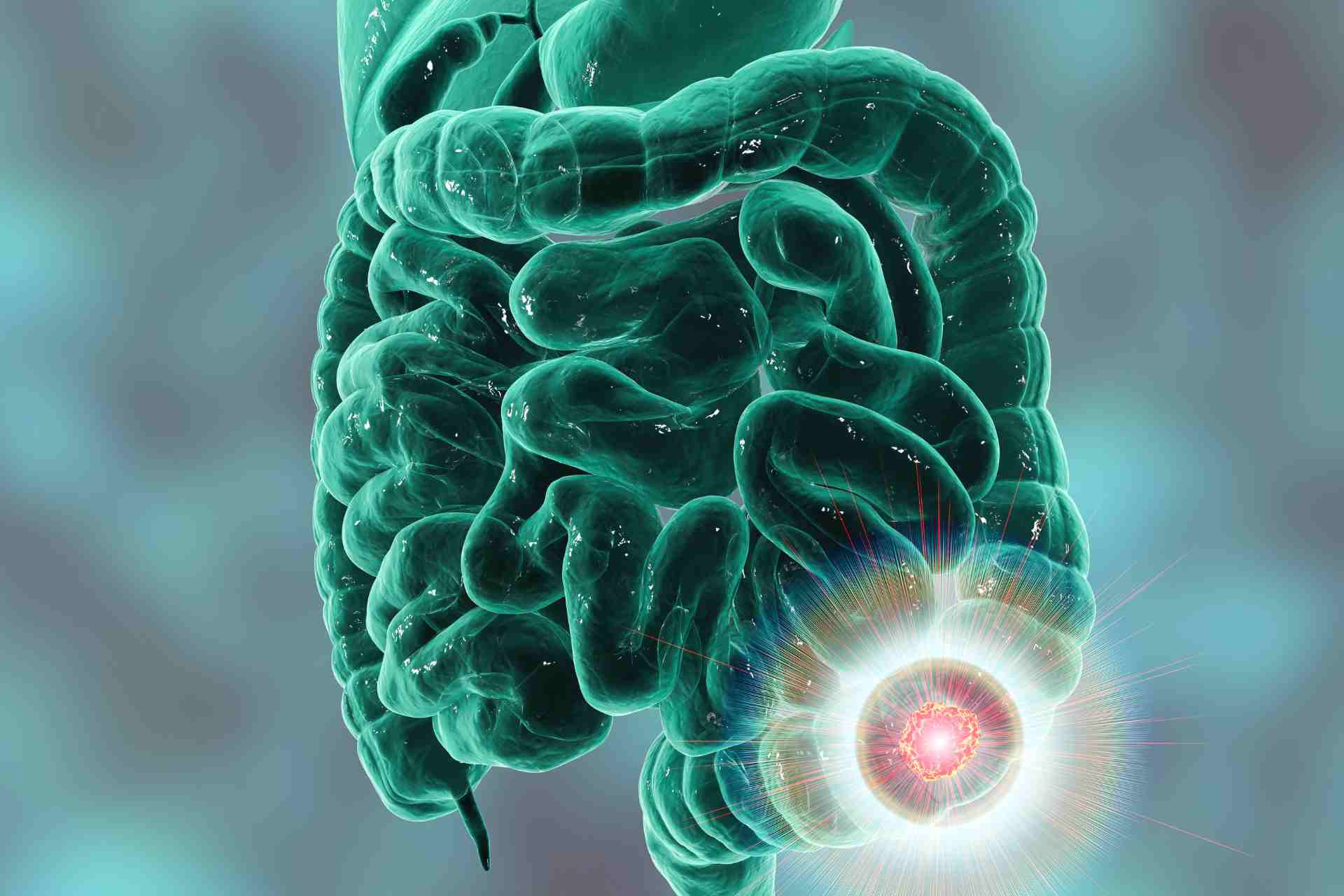What is already known
Colorectal cancer is one of the main causes of cancer deaths worldwide, and most cases occur in people without a genetic risk for colorectal cancer. Scientists have known that individuals with inflammatory bowel disease (IBD), a condition characterized by inflammation of the lining of the gut, are at increased risk of developing colorectal cancer, and previous studies suggested that microbial metabolites that damage or mutate DNA play a critical role in driving the development of colorectal cancer. However, the identity of these DNA damage-inducing microbial metabolites remains mysterious.
What this research adds
Researchers assessed the DNA-damaging ability of more than 100 gut microbes from people with IBD and identified bacteria whose metabolites caused DNA damage. One class of previously unknown, DNA-damaging microbial metabolites are produced by Morganella morganii, which is enriched in the gut microbiota of both people with IBD and those with colorectal cancer. The team dubbed these metabolites indolimines. In a mouse model of colon cancer, M. morganii exacerbated tumor growth and increased intestinal permeability. M. morganii strains that were not able to produce indolimines didn’t exhibit DNA-damaging activities and didn’t influence tumor development in mice.
Conclusions
The findings suggest that DNA damage-inducing microbial metabolites such as indolimines play a role in the development of colorectal cancer.
Colorectal cancer is one of the main causes of cancer deaths worldwide, and most cases occur in people without a genetic risk for colorectal cancer. Now, researchers have discovered microbial metabolites that can induce DNA damage in people with inflammatory bowel disease, a condition characterized by inflammation of the lining of the gut.
The findings, published in Science, suggest that these DNA damage-inducing microbial metabolites play a role in the development of colorectal cancer.
Scientists have known that individuals with inflammatory bowel disease, or IBD, are at increased risk of developing colorectal cancer, and previous studies suggested that microbial metabolites that damage or mutate DNA play a critical role in driving the development of colorectal cancer. However, the identity of these DNA damage-inducing microbial metabolites remains mysterious.
Noah Palm at Yale University School of Medicine and his colleagues designed a DNA-damage screening pipeline to assess the DNA-damaging ability of more than 100 gut microbes isolated from people with IBD.
Genotoxic metabolites
The researchers identified several gut bacteria whose metabolites caused DNA damage. For example, metabolites from Clostridium perfringens, Clostridium ramosum and other bacteria, as well as those from the commensal Morganella morganii, directly damaged DNA in test tubes and induced the expression of a marker of DNA damage in cells grown in a dish.
The team found that M. morganii produces one class of previously unknown, DNA damage-inducing metabolites, which the team dubbed indolimines. M. morganii is enriched in the gut microbiota of both people with IBD and those with colorectal cancer.
The researchers also identified a previously uncharacterized bacterial enzyme that is essential for the production of indolimines.
DNA damage
In a mouse model of colon cancer, M. morganii exacerbated tumor growth and increased intestinal permeability. Mice colonized with M. morganii also showed an increased expression of genes involved in cell cycle regulation, chromosome segregation and DNA biosynthesis — a finding that suggests that indolimines cause abnormal DNA replication and proliferation of intestinal epithelial cells.
M. morganii strains that were not able to produce indolimines didn’t exhibit DNA-damaging activities and didn’t influence tumor development in mice, the researchers found.
“These observations support a model whereby genotoxic gut microbes contribute to [colorectal cancer] development by persistently inducing DNA damage in host epithelial cells, which synergizes with chronic inflammation in the gut microenvironment, along with additional environmental factors,” the researchers say.









